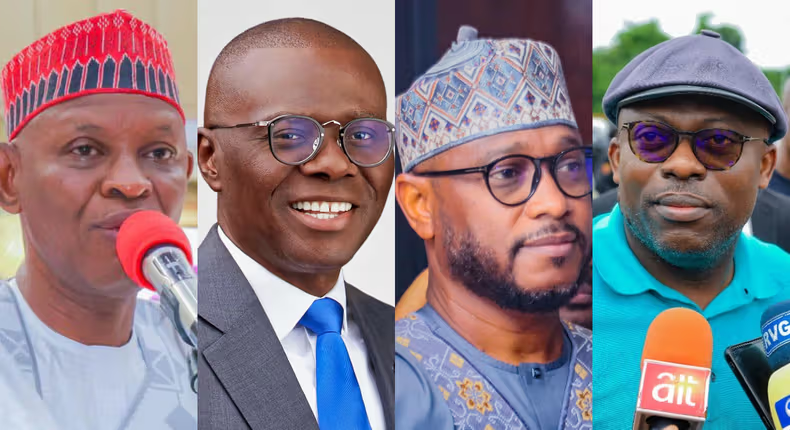Financial experts have raised concerns about the recurrent expenditures of states, emphasizing the need for financial innovations. A recent report has revealed that in the first quarter of 2024, at least 30 state governments in Nigeria collectively spent N986.64bn on recurrent expenses, encompassing various costs such as refreshments, sitting allowances, travel, and utilities. These findings were extracted from the states’ budget implementation reports, accessible on Open Nigerian States, a platform supported by BudgIT, which provides public budget data. Data for Benue, Imo, Niger, Rivers, Sokoto, and Yobe States for Q1 2024 were not available for review.
The analysis indicates that these 30 states allocated N5.1bn for refreshments, N4.67bn for sitting allowances, N34.63bn for travel expenses (both local and foreign), and N5.64bn for utility bills, totaling N50.02bn in expenditures during the first three months of 2024. Utility expenses covered electricity, internet, telephone, water, and sewerage charges. Additionally, the states allocated N405.77bn for employee salaries.
The report also examined other recurrent expenditures such as foreign and domestic travel, internet access fees, entertainment, food supplies, honorarium/sitting allowances, wardrobe allowances, telephone bills, electricity charges, stationery, special anniversaries/days, welfare, aircraft maintenance, and more.
In the first quarter of 2024, Abia State earmarked N10.92bn for recurrent expenses, including N165.38m for refreshments and feeding, N39.26m for utilities, N214.57m for sitting allowances, and N127.1m for local and international travel, among other costs. Similarly, Adamawa State allocated N23.7bn for recurrent expenses, with N287.61m for refreshments and feeding, N109.62m for utilities, N79.57m for sitting allowances, and N768.77m for local and foreign travel.
Financial experts have stressed the importance of states adopting financial innovations to address concerns about recurrent expenditures. Aliyu Ilias, a development economist, highlighted the need for states to focus on enhancing specific strengths to attract foreign investments, while Prof. Akpan Ekpo advised states to improve service quality to bolster their income streams. However, Prof. Segun Ajibola expressed concerns about excessive governance expenses at the state level, attributing the issue to insufficient oversight and accountability by state assemblies, which allows governors to operate without transparency or accountability. He emphasized the need for state assemblies to fulfill their oversight responsibilities effectively to ensure prudent financial management and meaningful economic benefits for local communities.
